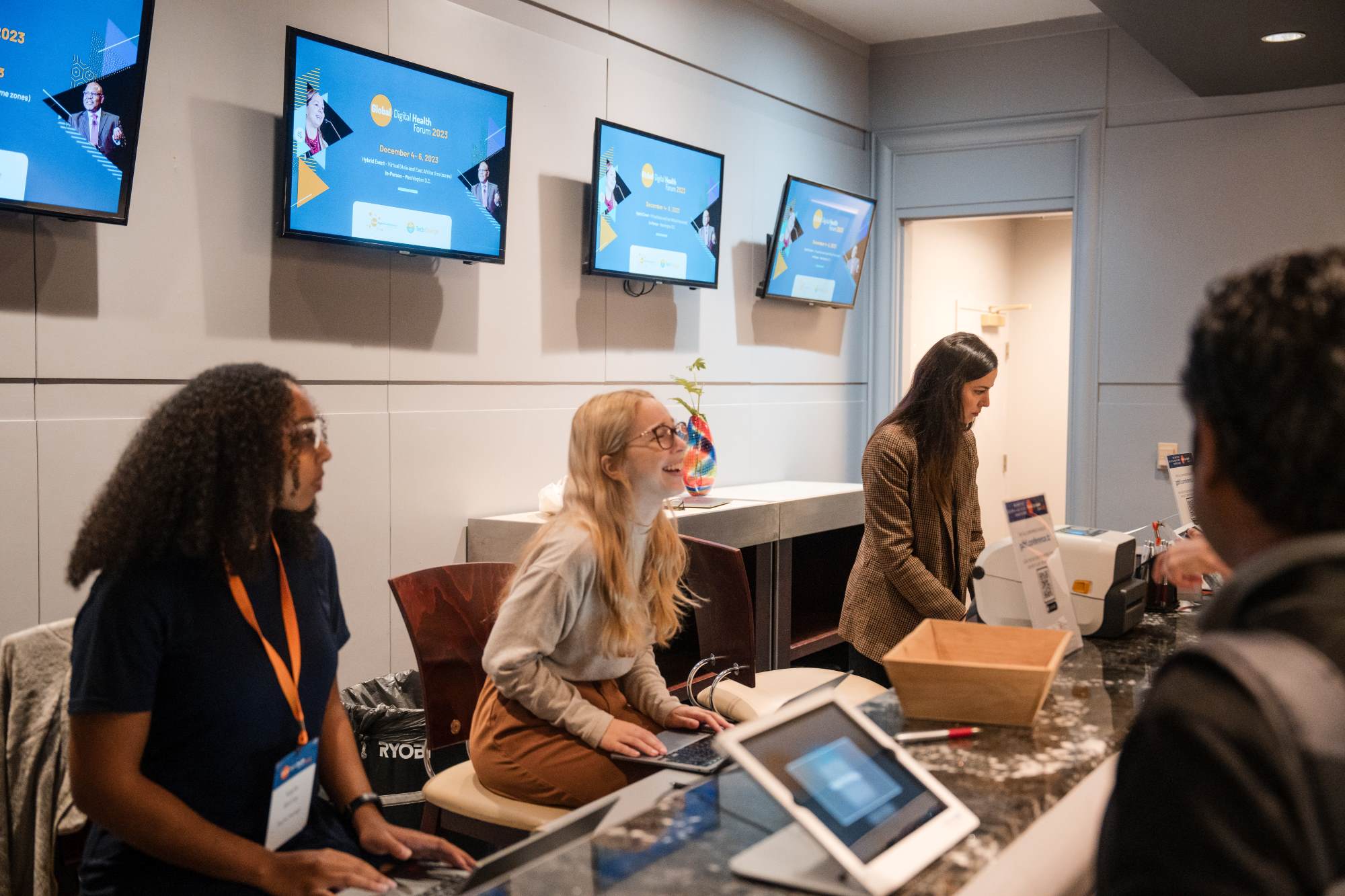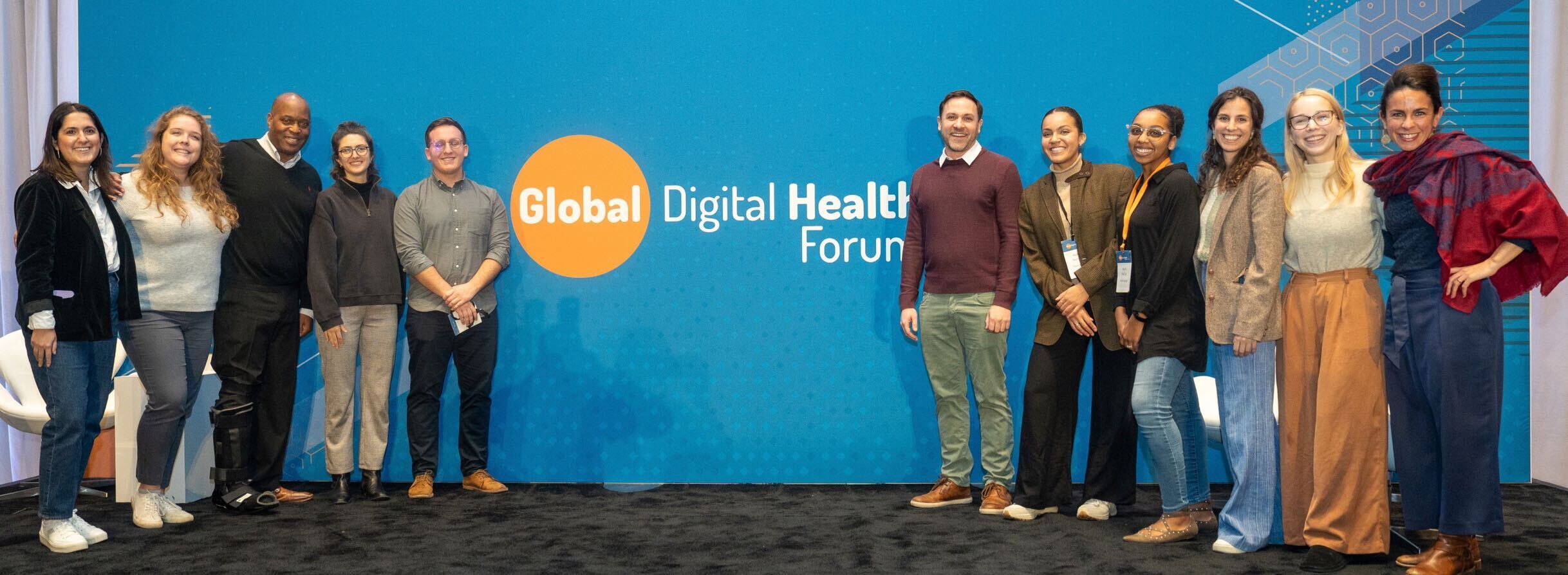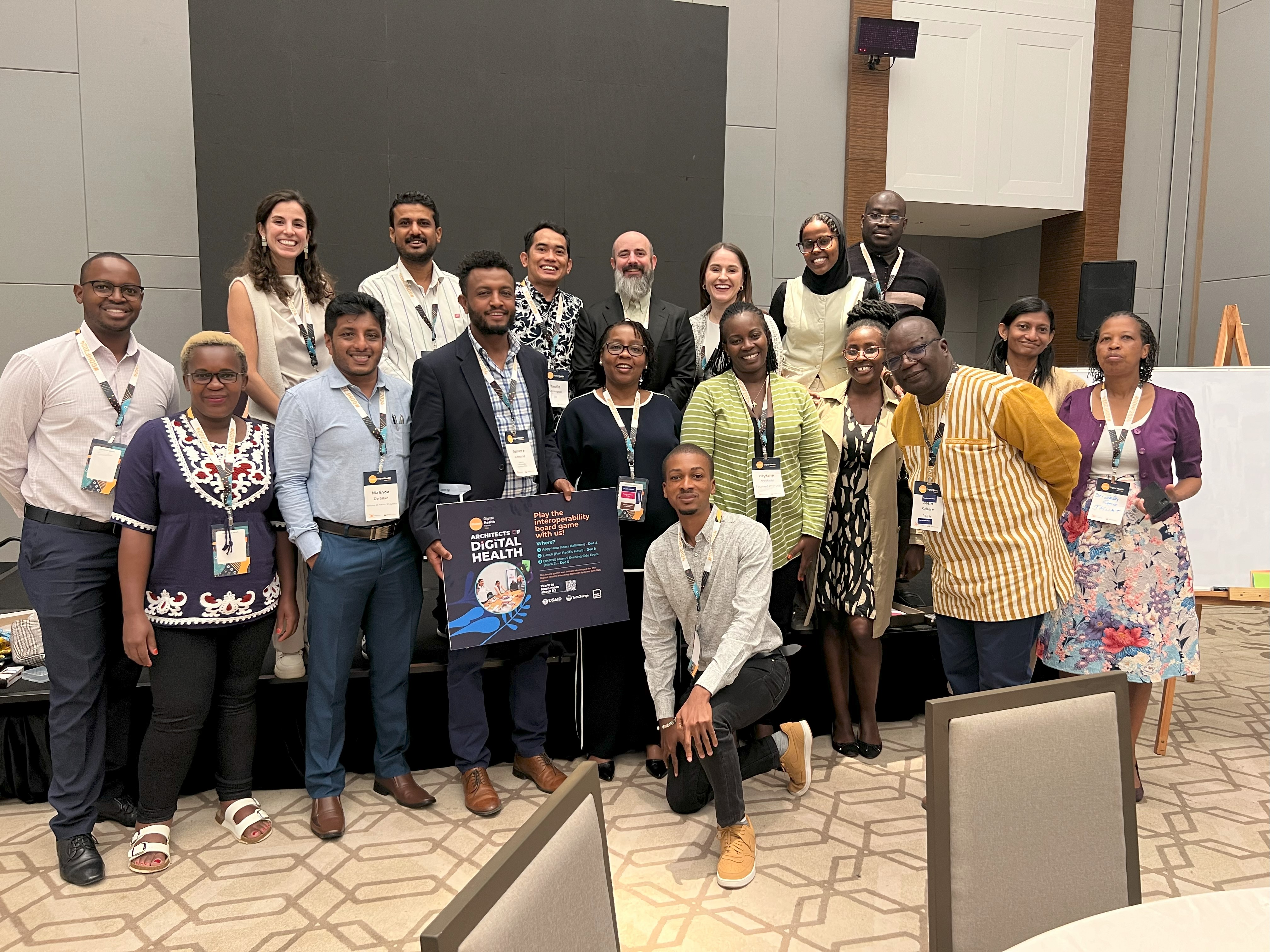By Marion Comi-Morog, TechChange Hybrid Event Manager
2023 marked the 13th year of the Global Digital Health Forum, and the hybrid event had the highest and most diverse attendance in the conference’s history. More than 700 attendees gathered in Washington D.C., with local “Watch Parties” in five other global cities, and nearly 2000 virtual participants tuning in. GDHF is the leading global public health industry networking opportunity for technology vendors, donors, researchers, government representatives, and implementing organizations working in low- to middle- income countries. You can read the case study here.
Making sure the conference is successful– and inclusive, engaging, and accessible– is a MAJOR undertaking and the TechChange team has learned valuable lessons along the way.
Here are my top five.
Be thoughtful when selecting your date and time (zones).
You’ll want to be aware of what else is happening within the sector; in particular, when other major conferences that your attendees may be interested in take place. If overlap is unavoidable, ask how your event can coincide or build upon others without directly conflicting? This can be helpful if people are traveling for your event, and they will already be in town for another major convening. You also want to be sensitive around major holidays (for all religions) and year-end reporting deadlines. Think about your audience- for example, if you are hosting a youth-centered conference, consider school hours. For GDHF, we have a global audience so we elected to offer sessions during the business hours of multiple time zones, including Africa, Asia, and the Americas.
Make sure the venue selection fits your vision.
It may seem tempting to select your venue as one of your first moves in the planning phase. Actually, it’s essential to work out core details of your event vision– including the session types that you’ll offer– before selecting the in-person venue. For example, for GDHF we had outlined nine different session types, from classic panels to lighting talks, interactive workshops, and technology solution demonstrations. We needed a space that fit the requirements of each session type, and would allow our media team to travel around the conference with our unique “Pop Up studio,” interviewing high-level speakers and attendees about their experiences. Other considerations when selecting a venue include wifi capabilities, parking, food options, and hotels and restaurants in the area for attendees.

The event platform is just as important as your venue.
The platform that you select for your hybrid event will serve as the registration portal and agenda for in-person attendees. But for virtual it’s more than that– the platform is their experience of the conference as a whole. So it’s vital that the event platform that you use to organize your event, broadcast your sessions to your virtual attendees, and tie together the in-person and online elements is top of the line. top of the line. From registration to wrap-up, you want your virtual attendees to feel taken care of and that their engagement is valued. On the TechChange platform, we use gamification to reward engagement, and even ran a competition for GDHF where attendees could earn engagement points and prizes. As you can imagine, customer support is also a crucial aspect, as no matter how intuitive you think your set-up is, attendees will have questions. You want to have a live team available to support them. At TechChange our support team is always run by humans, and we offered 24-7 support during GDHF 2023.
When the project is huge, assign points of contact, deadlines, and milestones.
This sounds simple, but you’d be surprised how helpful a common set of deadlines, milestones, and agreed-upon points of contact are for making sure that planning stays on track. Even more so when “planning by committee” as we do with GDHF, where there are several organizations involved and more than twenty sponsors. Having points of contact for various work streams and a project lead where the buck stops help to keep things moving, and ensure that different projects come together productively. When our TechChange event team works with partners to plan and execute their events, our folks are often playing this role. Project management software and shared documents also help ensure everyone has eyes on the prize.
Most importantly, convene the team you need for success.
For many people, hosting a conference is a part of the job that can swiftly become the whole job if they don’t have proper support. At TechChange, we work with social impact professionals of all stripes to create noteworthy global events– for many of our partners, it’s not their main job. So we step in with the infrastructure, energy, and ideas to help them ideate and execute their vision for an ideal conference. GDHF 2023 would not have been possible without the many TechChangers, contractors, sponsors, and speakers who dedicated their time and resources to bring this vision to reality. On behalf of our entire team at TechChange: thank you! See you in Nairobi for GDHF 2024!




